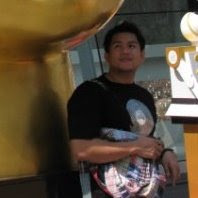For who yang selalu stress..i have some tips for reducing ur stress atu.not much lah..actually stress ani pasal psychological sympthoms that effect our brain then boleh buat we do anything unconsciously and stupid things..
What is “Stress”?
Given what we know about the physiology of arousal due to perceived threats, and given what we know about relaxation techniques to diminish that arousal, what can be said about the concept of “stress”?
A person could, for example, experience a job loss and respond to its perceived threat not with healthy problem-solving but with anger. This anger may be conscious or unconscious, but as long as it persists a state of physiological arousal will be maintained. In addition, perhaps this unfortunate person will experience a Major Depressive Episode or will develop an Anxiety Disorder.
In traditional terms it could be said that this person is under intense stress. In fact, because of Selye’s influence, psychology and medicine have tended to regard “stress” as if it were some “thing” that could destroy our health and happiness even against our wills.
But it could just as well be said that the person in the example has simply failed to accept change in a healthy, adaptive manner.
So maybe “stress” isn’t any “thing” at all. Maybe it’s just a descriptive term that our culture uses to normalize unconscious anger, a fear of love, a lack of forgiveness, a desperate clinging to a vain identity, and an absence of a spiritual life. Maybe “stress” is just a convenient myth to shift responsibility for life away from ourselves and onto something so vague that everyone can love to hate it.
But those who accept the discipline of a relaxation technique are at least taking a positive step—not to fighting “stress,” but toward living responsible lives.
Therefore, in order to manage SNS arousal in an emergency, a pilot—or any person—needs a third option, a sort of “unnatural” option: not fleeing the problem, and not fighting the problem either, but taking command of it. In an emergency, a person should be “pilot in command” of his or her body as one essential step in coping with the overall problem.
Taking command of breathing.
• Being aware of breathing rate
• Taking slow, deep breaths
Taking command of muscle tension.
• Being aware of which muscles are tense
• Letting go of muscle tension
Taking command of cognitive processes.
• Being aware of internal “self-talk”
• Being honest about the situation
• Changing focused, negative thinking and self-defeating thoughts to open, positive thinking and intuitive creativity
So remember: you should always be “pilot in command,” even if you’re never in control of anything.
• Trying to be in control is just a vain illusion that you can determine what happens next in your life.
• Being in command means that even though you can’t control what happens next, you can make decisions about what to do in response to whatever happens.
Subscribe to:
Post Comments (Atom)




No comments:
Post a Comment